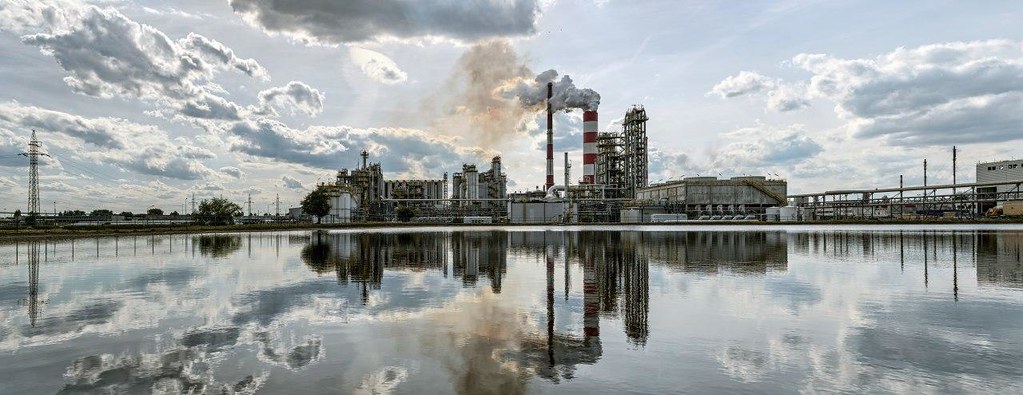7 months after the launch of The BNP Paribas Case by Friends of the Earth France, Notre Affaire à Tous and Oxfam France, our NGOs showed up to BNP Paribas’ AGM, alongside scientists, to ask the bank to account for its contribution to climate change.
The first General meeting of BNP Paribas since it was summoned for its climate change financing of fossil fuel development, this Tuesday, May 16th, has a special flavor for the associations behind The BNP Paribas Case. To support the demands of Friends of the Earth France, Notre Affaire à Tous and Oxfam France, representatives of the scientific community, members of the Scientifiques en Rébellion collective, took on the role of shareholders to call to account the board of the most polluting bank in France.
BNP, a major sponsor of climate change
The numbers are unequivocal: the French bank was the world’s No. 1 financier of Total in 2022, and has granted $165 billion to the coal, oil and gas industry since 2016.
Proof of BNP’s hypocrisy: this Annual General Meeting has just acted to reappoint Jean Lemierre as Chairman of the bank, who also sits on the board of Total, one of the most aggressive companies in oil and gas expansion. Clearly, the bank of a changing world is none other than the bank of a burning world… How long will BNP Paribas persist in denying science? The scientific community’s warnings are clear: experts from the IPCC and the International Energy Agency (IEA) say that in order to comply with the Paris Agreement and slow the rise in temperatures, we must stop developing new oil and gas fields.
Commitments that are far from sufficient
Prior to its Annual General Meeting, BNP announced on Thursday 11 May that it would stop financing the development of new oil and gas fields. While these announcements are a first step in the right direction, there is a snag, and not the least: the bank is ceasing to finance projects aimed at expanding fossil fuels, but it still refuses to commit to ending its financial support for the oil and gas majors. In other words, these new announcements are still far from the mark and allow BNP, in view of this annual meeting, to defuse the criticism of the Board of Directors of the bank with the green logo. BNP continues to shirk its responsibilities by stubbornly supporting its clients who develop oil and gas projects, and thus contributes massively to climate disruption. The Banking On Climate Chaos report, published in April 2023, states that BNP Paribas was the world’s leading financier of the 9 European and American oil majors between 2016 and 2022, having granted them $45.4 billion in financing. Only three months ago, BNP Paribas was still providing significant financing to the British major BP and the Saudi oil company Saudi Aramco, two of the most aggressive companies in the development of fossil fuel projects. Such financial support would still be possible today, after the too timid announcements of Thursday, May 11.
Members of the Scientists in Rebellion collective invite themselves to the party
Faced with this headlong rush by BNP Paribas, members of the Scientists in Rebellion collective invited themselves to the General Assembly to ask BNP’s board to answer for the bank’s climate-killer financing. By asking questions orally at the AGM, the scientists challenged the Board of Directors of BNP to face up to its responsibilities in terms of climate change.
In preparation for the AGM, members of the Scientists in Rebellion collective and co-authors of IPCC reports had also submitted a series of questions to BNP’s board. These questions were raised by the 600 scientists who signed the open letter of February 24, 2023, addressed to the board of BNP, urging it to cease its direct and indirect financial support for new oil and gas projects.
Olivier Aumont, a researcher in oceanography and member of Scientists in Rebellion, said: “While scientists have been sounding the alarm for decades, BNP Paribas, which claims to be a green bank, has not even bothered to respond to our open letter signed by 600 scientists.”
Let’s remember: scientists should not have to become shareholders of a bank to make themselves heard on the urgency of stopping its financial support to the deadly fossil fuel industry, but BNP’s inaction on climate is such that members of Scientists in Rebellion were forced to buy shares to invest BNP’s GA.
The demands of our associations are rooted in a clear observation shared by the scientific community. It is urgent to act!
A shameful welcome by shareholders
BNP’s shareholders, great defenders of the old world and cynical profiteers of a +4°C planet, booed the scientists’ interventions. But it gets worse: during the interventions of representatives of Argentine and Filipino communities impacted by Shell or Total oil and gas projects, supported by BNP, the activists who came to expose the damage to their communities and territories were booed and insulted with racist slurs (“Go back home”) by the shareholders. A shameful behavior, symbol of a retrograde world that clings to its profits that are fatal to the environment and human rights.


